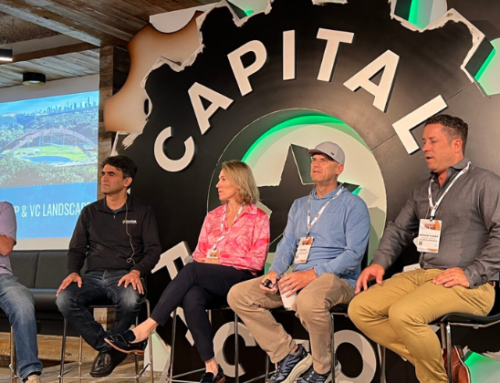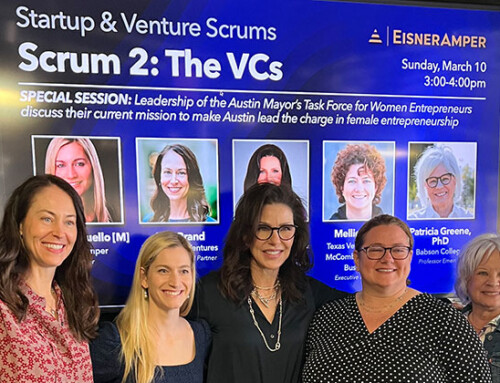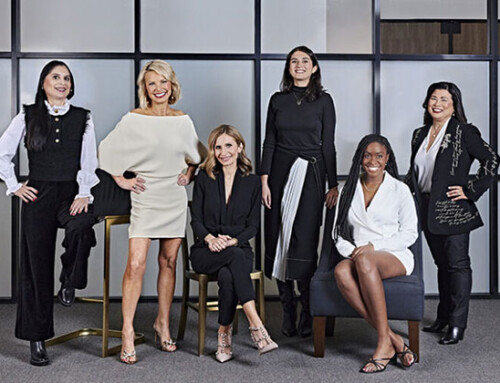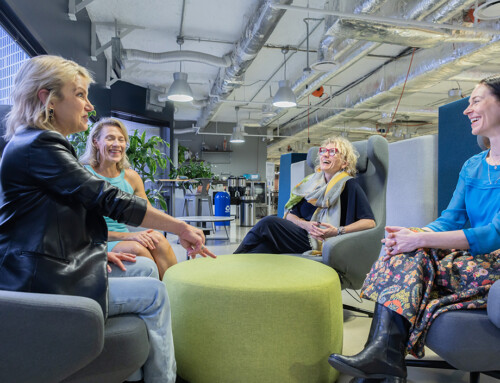In the first of this two-part series, I explored what’s been dubbed the LOHAS market: the $290 billion segment comprised of health, the environment, social justice, personal development, and sustainable living. As consumer demand in this segment increases (at a rate of approximately 10% per year), consumer needs are also changing. New startups are forming to address these needs, many of which are environmentally sustainable enterprises and B Corps founded by women. On the corporate side, more companies are aligning their mission statements to include corporate sustainability as a focus, and research shows that women are a strong force driving these changes. The future of business does indeed look greener.
A Global Entrepreneurship Monitor survey of over 10,000 entrepreneurs across 52 countries found that women are 1.17 times more likely than men to pursue a venture with an environmental or social mission statement. And not only are women starting more “mission-driven” enterprises, they are adding significant value by doing so. Early research of B Corps in particular, including an Emory University study, shows that such companies with at least one female founder on the team outperform those with all-male founding teams. Sound familiar? As an added bonus women are also, “twice as likely to reach the top ranks in social enterprises as they are in mainstream businesses” (The Independent).
Women in business are often driving ESG (Environmental, Social and Governmental) initiatives at larger organizations, too. A 2012 UC Berkeley study of over 1,500 companies drew a very strong link between corporate sustainability and women in leadership. They found that “companies with more women on their board of directors are more likely to”: proactively manage the energy efficiency of their operations, reduce carbon emissions, offer more nutritional and healthier products, be more transparent, and avoid major controversy.
Why is this? Simply put, women are drawn to more impactful work. This isn’t exactly a new trend, as historically women have always filled more altruistic roles (nurses, teachers, etc.). This nuance is something that STEM programs are leveraging to increase the numbers of women in their incoming classes, and it can be seen at a very young age as evidenced by the success of the GoldieBlox approach. It is also a trend on which smart wealth advisors are picking up. Based on a recent U.S.Trust survey, 40% of women (versus 26% of males) are interested in impact investing, which is the art of creating portfolios that earn market-rate returns while also seeking to advance social or environmental aims.
However, as Servane Mouazan points out in The Guardian, it’s crucial to not think of businesses as inferior just because they have a social mission. In fact, the opposite is increasingly true. This is the basis of the Conscious Capitalism movement; the Conscious Capitalist Credo states that, “free enterprise capitalism is the most powerful system for social cooperation and human progress ever conceived,” and every business has a higher purpose that includes but is not just limited to making money. As the thought leaders behind the movement point out, “the companies involved with Conscious Capitalism are very much aligned with what are traditionally seen as feminine values” including holistic approaches and win-win outcomes.
Profit and positive impact should not be thought of as exclusive of one another, nor does one have to detract from the other. The two can be complementary, and in fact, the most successful business of the future will recognize this. As women entrepreneurs and corporate leaders continue to drive this newly framed business strategy, new solutions to meet the increasing needs of the LOHAS market will continue to arise. And True Wealth Ventures will be there to support them.
Hughes, K. and J. Jennings, (eds) Global Women’s Entrepreneurship Research, Edward Elgar.
Chen, L. and P. Roberts, “Founders and the Social Performance of B Corporations,” Emory University.
“Special Report: Social entrepreneurship – it’s boom time for businesses with heart,” The Independent
McElhaney, K. and S. Mobasseri, “Women Create a Sustainable Future.” UC Berkeley Haas School of Business
“How to Attract Female Engineers,” The New York Times
Groeber, Janet, “The Goldie Standard,” National Retail Federation
Milburn, Robert, “Impact Investing Done Right,” Barron’s
Mouazan, Servane, “Why I Care About Women and Social Enterprise,” The Guardian
“The Conscious Capitalist Credo,” ConsciousCapitalism.org
“Feminine Values: The Secret Ingredient in Leadership,”Conscious Company Magazine






